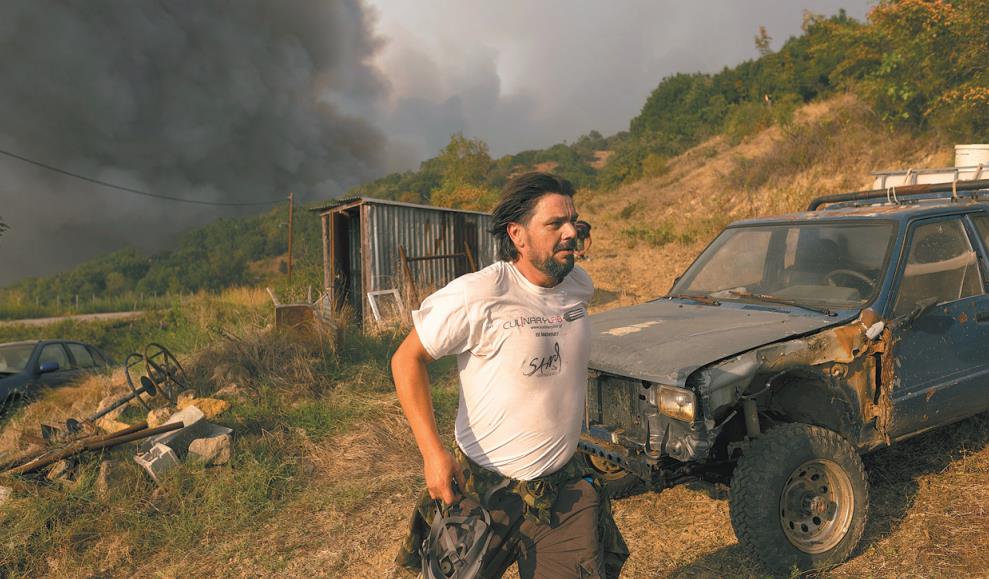Global efforts needed to fight climate change, save planet

Editor's note: The staggering rise in the number of global extreme weather events demands greater international efforts to reduce climate change impacts. This page reviews experts' observations, analyzing how these issues affect global migration, food security, infrastructure, and geopolitics.
Experts warn of devastating impacts on agriculture and livelihoods

When Alicia Wang traveled to the northern part of Italy, she never expected to encounter a horrible hail.
"The northern part of Italy has a Mediterranean climate and it seldom rains in summer, let alone hail," she said.
"However, when we arrived there, suddenly, there was strong wind, and then it started to hail and rain. The hail was as big as a plum, which shocked even local people who had never seen things like that happening in the region before."
Wang, having worked in Rome, Italy, for four years, notably observed a rise in frequency and intensity of extreme weather events in the country.
In the southern part of Italy, wildfires are getting more frequent in summer and are beginning to spread to the central parts, she said.
Ma Jun, director of the Institute of Public and Environmental Affairs, an environmental group in Beijing, said this year has again witnessed a significant increase in extreme weather events around the world.
From blistering heat waves and severe droughts to devastating hurricanes and rampant wildfires, the impact of climate change is becoming more evident.
Under the influence of global warming, extreme weather events such as heat waves and floods may become Europe's "new normal" in summer and have increasingly affected the European population, economy and nature, the European Environment Agency said in a recent report.
Between 1980 and 2021, weather- and climate-related extremes caused economic losses estimated at $606 billion in the European Union, while nearly 195,000 fatalities have been caused by floods, storms, heat and cold waves, forest fires, and landslides, the agency said.
More than 600 firefighters, including reinforcements from several European countries and backed by a fleet of water-dropping planes and helicopters, were tackling three major wildfires in Greece on Sunday, two of which had been raging for days.
In the past week, Greece has been continuously troubled by numerous fires as strong winds and dry summer weather have fueled the flames and made firefighting efforts more difficult.
On Sunday, there were a total of 105 wildfires being fought across the country, with 46 of them starting within a 24-hour period between Saturday evening and Sunday evening, the fire department said.
Italy also experienced its third major heat wave this summer, with 17 of its 27 largest cities on "red alert" for heat.
Europe's soaring temperatures are also hitting the region's highest peak, Mont Blanc, heightening the risk of rockfall and new crevasses opening on its glaciers, rescuers and climbers said on Wednesday.
In the United States, the Maui wildfires in Hawaii on Aug 8 have killed at least 115 and left hundreds of others missing, making them the deadliest in the US in more than a century. The fires also destroyed forests, wildlife habitats, and cultural sites.
Many other regions across the world have also experienced record-breaking temperatures and precipitation patterns, leading to disruptions in agriculture, infrastructure damage, and threats to human health and safety.
Qu Sixiao, senior project manager of the global consultancy Roland Berger, said extreme weather events are caused by the overall climate change, and the core reason for climate change is excessive greenhouse gas emissions from human activities since the industrial era, which surpassed the capacity of the environment.























